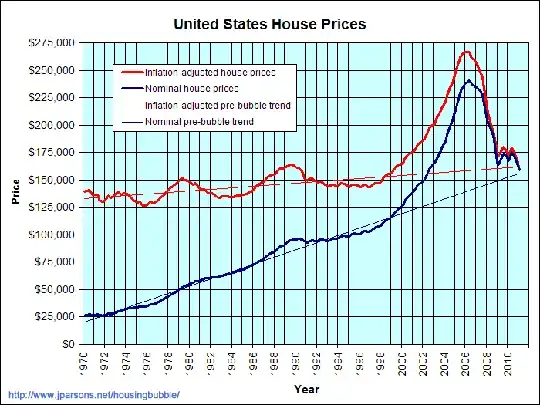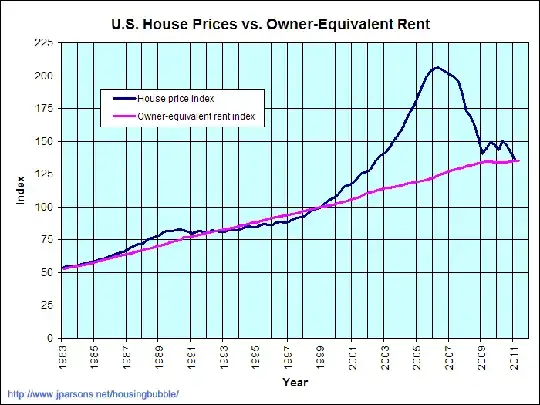Here's another way to think about. Let's assume it is 2011 and we have a married couple who are 25 and make a combined salary of $50,000/yr net. A suitable first house in their area is $300,000, six times their annual net salary. Assuming they could scrimp so that 1/2 of take-home went toward saving for their home, they could save enough to buy the house using cash in 12 years, at the age of 37. Onerous, but they could do it.
But now let's allow salaries to increase by 3% a year and homes at 10%/yr, as in your question, and let's run things out for 20 years.
Now a 25 year old couple at the same sort of jobs would be making $87,675/yr. But the houses in that town would be worth not $300k but $1,834,772. Instead of six times their salary, a house is now nearly 21 times their salary. This means that if they saved 1/2 of take-home to save up for a house, they could afford to buy the house using cash when they were 67 years old.
It gets worse quickly. If you run it out for just ten more years, to 30 years, a couple would be able to buy the house -- at $4.8 million or 40x a year's salary -- in cash when they were 105 years old. (Let's hope they ate brown rice).
Mortgages can't save them, since even if they could put down ten years' worth of savings on the 2041 house (that'd be 14% down), they'd still carry a $4.1 million mortgage with a $118k annual net salary.

